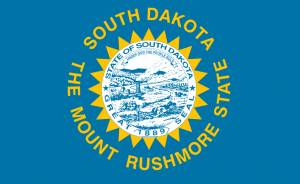Top 3 Administrative Law Issues In South Dakota
Administrative law focuses on the regulatory and enforcement powers of governmental agencies. In South Dakota, administrative law may encompass federal regulations such as OSHA or state agencies such as hunting and fishing licenses. Below are some common Administrative law issues that may arise in the Rushmore state:
 Fishing and Hunting Licenses
Fishing and Hunting Licenses
Fishing and hunting are popular pastimes in South Dakota. Pheasants, deer, turkeys, and ducks are popular game in the state. Salmon and trout are also popular fish in the state’s lakes. Licenses and fees may vary for big game, residents, and non-residents. Fishing and hunting are regulated by the state’s Game, Fish, and Wildlife Department (GFW). You may need the assistance of an administrative law attorney if you have any difficulty in obtaining a license from the GFW.
Native American Relations
South Dakota is home to several different Native American tribes. The tribes include: Cheyenne River; Crow Creek; Flandreau; Lower Brule; Oglala; Rosebud; Sisseton Wahpeton; and Standing Rock. Native Americans play a sizable role in the culture of the state such that there is a Department of Tribal Relations (DTR) in the state government. The DTR provides support for social services and identification to Native American tribal members as well resources for managing the COVID-19 pandemic. You may need the assistance of an administrative law attorney when interacting with the South Dakota Department of Tribal Relations.
Public Benefits in South Dakota
Administrative law includes the supervision of public benefits, including social security, disability benefits, and worker’s compensation. If an agency denies a public benefit, the petitioner may appeal the agency’s denial by filing a claim in the respective court. A judge will then review the case to determine whether the denial was justified.
South Dakota has a number of state programs alongside federal programs. South Dakota programs include Temporary Assistance for Needy Families (TANF), which are monthly cash payments for households with children younger than 18 and where the parent is deceased, incapacitated, or otherwise absent. South Dakota public benefits also include Supplemental Nutrition Assistance Program (SNAP) to help low-income families with food and a Children’s Health Insurance Program (CHIP).
Do I Need an Administrative Law Attorney In South Dakota?
Administrative law can be very difficult for laypersons to navigate as the rules and laws involved can be archaic and nuanced. If you need assistance appealing an administrative law matter in South Dakota, an administrative law attorney may be able to help you.


Comments